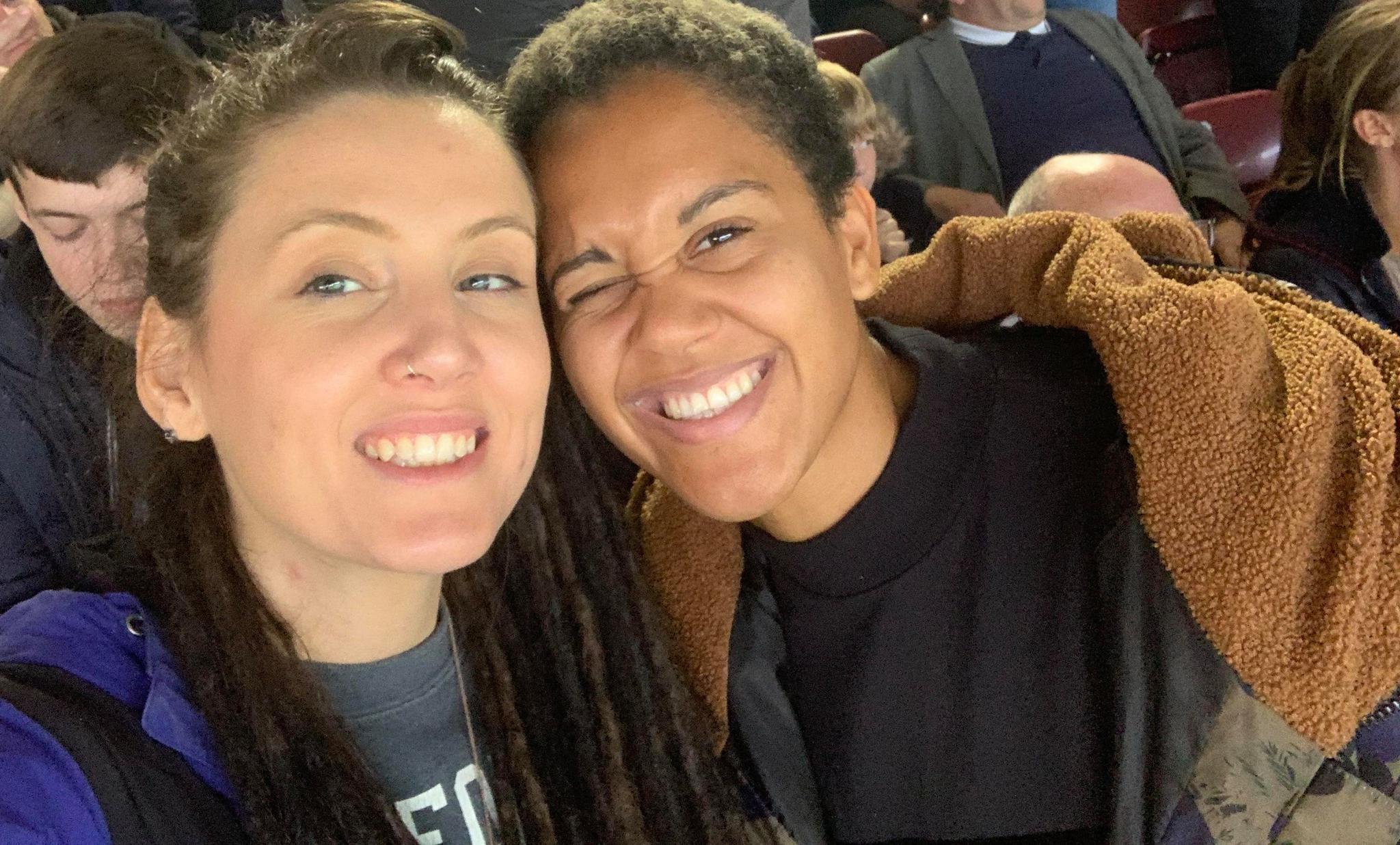Tasha's Take On History

A young mixed-race lady from Liverpool has highlighted exactly what Black History Month means to her and how she is celebrating the annual event, which is observed during October in the United Kingdom.
Tasha Roks, a self-employed Sports Massage and Clinical Therapist at Roks Therapy, was always aware of her culture growing up, but it was only when she read a particular piece of literature that the lifelong Everton fan really began to understand what being black in Britain really meant to her, as she explains:
“I never used to think much of black history month as I’ve never really understood black history in British culture. In school we are taught about the slave trade and we hear so much about black history in America but not British black culture. It was only recently when I read Why I’m No Longer Talking To White People About Race by Reni Eddo-Lodge that I began to understand what being black or of mixed race in the UK actually meant.
“Black British history is not all about slave ports and people coming to England because it is better than where they have come from,” continued Tasha. “There is so much more to the origins of black people on this turf, a lot of that being positive. When you think about British culture, we excel in arts, sports, politics, medicine and innovation. Black people have played major parts in all of this but I feel with recent political unrest that this gets overlooked.
“It is important that we recognise that as a nation that we are so diverse which has made us successful in a global sense. I also think we should celebrate how far we have come over the centuries and embracing black culture is part of that.”
Originating in the United States, where it is also known as African-American History Month, Black History Month has received official recognition from governments in the United States and Canada and more recently has been observed unofficially in Ireland, the Netherlands, and the United Kingdom. It began as a way of remembering important people and events in the history of the African diaspora, which consists of the worldwide collection of communities descended from native sub-Saharan Africans or people from Sub-Saharan Africa, predominantly in the Americas.
Tasha who has been with partner Hana for nine years and in a civil partnership for seven, run Hans Tours, one of Everton’s biggest and most prominent supporters’ clubs. And the 33-year-old remains steadfast in her belief that football and sport in general has a huge role to play in the promotion of equality and inclusion.
“Football is the biggest sport in this country, followed by millions of people of all ages and backgrounds,” said Tasha. “With great power comes great responsibility and football has to take ownership of this. I think any sport which has this power over a nation can make big changes and change the way people perceive others that are different to them. This was shown in South Africa in 1995 when South Africa won the Rugby World Cup and Nelson Mandela united black and white people.”
Everton Football Club’s recent banner in support of new signing Moise Kean was something Tasha was very proud about and something that highlights how far society has come.
“The banner was great and shown that as a club, we won’t stand for racism. Times are changing and I think Everton have come a long way since I was a kid. For me, the banner meant more than solidarity. It was humbling to see the reactions of fans of other clubs on social media too.
“No child is born a racist or judgemental,” she continued. “A child may ask questions and they are usually innocent. For me, it is the adults that are bringing the children up that need re educating. Growing up, I remember racism coming from my teachers and I had to change school four times because of adults which then reflected onto my peers and made my life hell.
“It is important that we understand that British culture is not and will not always be the same. Change has always been a constant in our culture and it is important as adults that we learn to adapt this into our way of thinking and teach the younger generation the same. I’m not just talking about parents, teachers, coaches and role models. I’m also talking about the way we use media to portray different people and cultures.
So with society moving forward, Tasha views Black History Month as a celebration of diversity and culture and will continue to embrace her culture and the celebrations that goes with that.
“As an adult I’ve usually gone to the heritage museum and spent time reflecting, again, on the negative past,” she said. “This year it is all Rock ‘n’ Roll! I’m going to be listening to more podcasts and audiobooks which celebrate black culture in this country and just enjoy the attention it brings within itself.
“I have learned a lot over the last couple of years about black history in the UK and will be sharing that knowledge to anyone who wants to listen.”

0 Comments Add a Comment?